Burkina Faso and Ivory Coast
In Burkina Faso, President Roch Marc Christian Kabore (right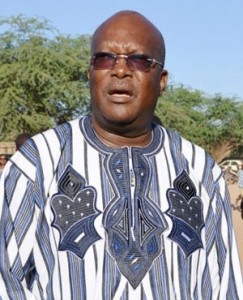 ) has named a new military commander, two weeks after Islamist jihadis killed 12 Burkinabe soldiers in a major raid, a government statement announced this week.
) has named a new military commander, two weeks after Islamist jihadis killed 12 Burkinabe soldiers in a major raid, a government statement announced this week.
Colonel Oumarou Sadou was made chief of the armed forces General Staff, according to the statement, released after a cabinet meeting in Ouagadougou. The President declared that “the appointment “comes in the framework of the reorganisation of the armed forces”.
Colonel Sadou originates from the arid Sahel region in northern Burkina Faso, which is frequently attacked by jihadists from Mali, across the border.
Colonel Sadou, who served as army chief of staff in 2011 and was later entrusted with the oversight tasks of inspector of the armed forces, has a reputation for tough tactics.
An estimated 40 Islamist fighters attacked a Burkinabe military base at Nassoumbou, around 30km from the Burkina-Mali border on 12th December, in what local authorities called the biggest ever jihadist attack on the army. That raid caused a public outcry, with some calling for the sacking of the Burkinabe military leadership, accused of failing to match up to the jihadist threat
It was the second direct strike against the Burkina army since jihadist militants surfaced in the country in early 2015, mostly staging attacks in the north near the borders of Mali and Niger. An earlier attack on Burkinabe troops, in the same region, in October left six dead (two civilians and four soldiers).
Days after the December 12th attack, Mali President Ibrahim Boubacar Keita (IBK) stopped off in Ouagadougou, on his way back to Bamako from a summit in Nigeria, to show his support for Burkina Faso. “There can be no question of people coming to kill with impunity in Burkina and then finding safe refuge in Mali, certainly not,” Keita told reporters as he stood alongside Burkina President Kabore, subsequently announcing that allowing cross border hot pursuit operations by Burkinabe soldiers would be considered.
Long spared the widespread Islamist violence affecting several nations in the region, notably Mali and Niger, Burkina Faso has been hit by a series of attacks and kidnappings since April 2015. Most of those raids have occurred near the northern border with Mali, but in January 2016, bringing the violence to the capital, 30 people were killed and another 71 were wounded in Ouagadougou, after gunmen stormed a restaurant and a four-star 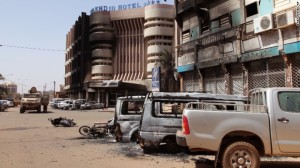 hotel (the Splendid Hotel, a favourite meeting place for Western diplomats in the city). The dead included citizens of Canada, France, the Ukraine and the United States.
hotel (the Splendid Hotel, a favourite meeting place for Western diplomats in the city). The dead included citizens of Canada, France, the Ukraine and the United States.
Al-Qaeda in the Islamic Maghreb (AQIM) later claimed responsibility for that attack, which only ended after Burkinabe troops and French counterterrorist forces posted in the country staged an operation to release remaining hostages
President Kabore ordered the country’s army to respect the “rule of law”. The impoverished, landlocked west African country has been blighted by numerous coups and mutinies since gaining independence from France in 1960. In late October, the Burkinabe Government claimed it had thwarted another coup plot, led by troops loyal to former president Blaise Compaore, who was forced from power two years ago, following a popular revolt, after trying to extend his 27 years in power.
In October, Burkina Faso’s Interior Minister Simon Compaore (no relation to the ousted former president) announced that the government had foiled another “vast conspiracy” to attack the presidential palace. The minister claimed that around 30 troops from the ex-president’s security unit allegedly planned to free comrades detained during the failed September 2015 coup against the transitional government that took power after Blaise Compaore’s fall. Authorities uncovered the plot on October 8, arresting four people who turned out to be former members of Compaore’s Presidential Guard.
The earlier September 2015 coup bid was also staged by Presidential Guard troops loyal to Blaise Compaore, but was thwarted by street protesters in Ouagadougou, supported by loyal army troops who attacked the barracks of the Presidential Guard. In November 2016, Ivory Coast extradited three Burkinabe soldiers back to their homeland. The three were also former members of the Presidential Guard. The 1300-man Presidential Guard was eventually disbanded in late 2015.
“Those arrested are what we call the ‘hard core’ of the attempted putsch,” Interior minister Simon Compaore stated, when thanking the Ivorian authorities, even as relations between the neighbouring west African countries have been strained as former president Blaise Compaore has been living in exile in Abidjan since his ouster.
“Democracy needs a strong and republican army, an army that conforms to the rules and to the demands of the rule of law, and which doesn’t act as if in a state of emergency,” Kabore told soldiers gathered in the capital Ouagadougou for celebrations marking the 56th anniversary of the country’s armed forces (FAN).
The President called on the army to maintain “an attitude of neutrality” and to stay out of the “political sphere”, saying it must “serve the government, which.. draws its legitimacy from a public electorate”.
Since independence in 1960, the former French colony of Haute Volta (Upper Volta), renamed Burkina Faso in 1984, has experienced eight successful coups d’état.
Of its nine presidents, only three have been civilians, while the other six were military officers installed through coups. President Kabore is only the second elected civilian, of those nine presidents who have ruled Burkina Faso in the nearly 60 years since independence.
Kabore also used the ceremony to urge vigilance against the “permanent threat of terrorism” in a country whose estimated 17-million population is roughly 60 percent Muslim, according to a 2006 census, with Christianity and traditional beliefs also widely practised.
Desperately poor Burkina Faso has known much turmoil over a half-century of independence, and its ambitious prime minister, Paul Kaba Thieba has pledged an “insurrection against poverty”.
“We are at a critical moment in our history. This is a programme of truth, a programme of rupture”
Thieba, who cut his teeth in west African policy as an economist and central banker, is one of the architects of that rupture from Burkina’s strongman past. Now Burkina Faso is looking ahead with a $24.9bn, five-year development plan to rid itself of its unwelcome distinction as one of the world’s poorest countries. “We succeeded with the popular insurrection (against Blaise Compaore). We were victorious in resisting the (September 2015) coup d’etat”, Thieba said. “There is one insurrection left to win, and that is the insurrection against poverty”.
President Kabore led a delegation to a donors conference in Paris in early December, aiming to raise $9.1bn in loans. Prime Minister Thieba said that Burkina Faso will finance $15.9bln of its development plan with “our own resources” – a heady claim for a nation whose annual budget in 2016 weighed in at $2.8bn and whose top exports include cotton and sesame seeds.
The goal, he said, was to reduce the number of Burkinabe who live in poverty from today’s staggering rate of 40%, down to 35% in 2020, to create 50 000 new jobs and to enact needed structural reforms. “We aren’t going to Paris to ask for handouts but to build partnerships… If you just take the handouts… and don’t make the structural reforms needed to allow those investments to take hold, then the whole thing serves no purpose”.
President Kabore, who like Thieba also trained in economics and worked in banking before turning to politics, has laid out a progressive platform to modernise the nation of 17.4 million, ranked 183rd out of 188 on the UNDP human development index. Thieba said their plan included a focus on girls’ education and family planning in a bid to lower the birth rate. “The rate of demographic growth is 3.1% per year. With economic growth at six percent, it is difficult to imagine reducing poverty”, he said.
He also said they hoped to harness new technologies to help the 80% of Burkinabe who eke out a scrappy existence on subsistence agriculture. “Fertile land throughout Burkina Faso is going unused, or is underutilised… The production techniques we employ produce weak yields,” he said, citing average national yields of grain of 1.5-2.0 tonnes per hectare, compared with 10 to 12 tonnes in other countries. “The Burkinabe people have to understand that financing the (development plan) is a patriotic act. The goal is to take control over our own destiny.”
Meanwhile, across the border in Ivory Coast, on Friday 6th January 2017, heavy weapons fire was heard near Ivory Coast’s largest military camp in the city of Bouake, where it was reported that at least two police stations had been attacked by soldiers who reportedly also launched mutinies in two other cities, in Daloa, in the central region, and Korhogo in the north, demanding higher pay, and bringing the threat of unrest back to Africa’s fastest-growing economy.
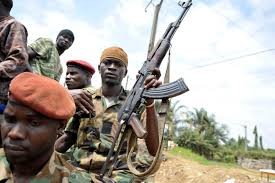 According to one source on the ground, “It’s a mutiny by former fighters integrated into the army who are demanding bonuses of 5 million CFA francs ($8 000) each plus a house”, with heavily armed soldiers also attacking police headquarters, erecting barricades in the town centre and throughout the city, and moving around freely in looted police vehicles. The rebellious soldiers also appear to have taken control of the main arteries through and from Bouake that are used by transportation companies to carry merchandise from Mali and Burkina Faso
According to one source on the ground, “It’s a mutiny by former fighters integrated into the army who are demanding bonuses of 5 million CFA francs ($8 000) each plus a house”, with heavily armed soldiers also attacking police headquarters, erecting barricades in the town centre and throughout the city, and moving around freely in looted police vehicles. The rebellious soldiers also appear to have taken control of the main arteries through and from Bouake that are used by transportation companies to carry merchandise from Mali and Burkina Faso
Bouake, the second largest town in Ivory Coast, was the capital of a rebellion that split the country in two after it tried to push former president Laurent Gbagbo from power in a 2002 coup attempt. That partitioning of the country sparked a decade of crises. This former French colony’s reputation as a model of political stability in a region better known for conflict was shattered after its first coup in 1999, with the crisis reaching rock-bottom in 2002, when fighting erupted in skyscraper-lined Abidjan.
That was the start of a civil war that ended months later in a stalemate, leaving rebels in control of the northern half of the country, with their stronghold in Bouake.
A political breakthrough came in 2007 with a peace deal that saw rebel leader Guillaume Soro appointed prime minister in a unity government.
The soldiers, however, now say that not all the promises made in that 2007 agreement were implemented, and it appears that long term grievances not resolved at the time have erupted again into rebellion
On the political front, in 18th December polls, President Alassane Ouattara’s ruling coalition won 65.75% of the vote, strengthening its hold in parliament, as the world’s top cocoa producer seeks to remain in the economic fast lane.
The presidential coalition, named the Houphouetist Rally for Democracy and Peace (RHDP) in tribute to the country’s founding president, won 167 seats in the 254-seat National Assembly.
Provisional results released by the authorities put turnout at 34%, according to the Independent Electoral Commission (CEI).
The Ivorian Government had deployed at least 30,000 security personnel for the vote, in the wake of scattered incidents in recent months, including attacks on police posts. But Ouattara said after casting his vote in Abidjan that “the election is taking place in a peaceful manner across the country.”
The opposition, which had boycotted the 2011 legislative election, had been hoping to make a return to parliament, with former prime minister Pascal Affi Nguessan, who leads Gbagbo’s Ivorian Popular Front (FPI), calling for the people to “reestablish the political balance”.
Most objective observers, and even some in the opposition, acknowledge the economic benefits of Ouattara’s 5-years rule, but find less convincing the political record of the President and his coalition. In their view, national reconciliation remains unfinished, the judiciary is under fire, and they shunned the October 2016 referendum on what they considered to be a divisive new Constitution. That referendum, to change Ivory Coast’s current Constitution, passed easily, but opponents swiftly dismissed the vote as fraudulent.
President Alassane Ouattara said that constitutional changes were necessary to help end years of instability linked to disputes over national identity, while critics labelled the vote an attempt to line up a successor for when his term ends in 2020.
The “Yes” camp won 93% of votes cast in that October constitutional referendum, with the official turnout rate put at just over 42%, leading to one of the opposition leaders quickly dismissing the official results as “obviously faked”. The referendum package, put to the country’s 6.3 million voters, also included creating a post of vice president as well as a senate, a third of whom would be appointed by the head of State.
Those measures alarmed opposition leaders and prompted accusations that Ouattara was trying to install a sympathetic successor.
The constitutional changes eliminated a contested clause on Ivorian national identity that took effect in 2000 and which stipulated that both parents of a presidential candidate must be born on Ivorian soil, and not have sought nationality in another country. That issue contributed to years of unrest in Ivory Coast, as Ouattara himself hails from central Ivory Coast, with an Ivorian mother, but his father was born in neighbouring Burkina Faso, and the issue of his “Ivorian-ness” raised a hurdle in his first bid for the presidency in 2010. He eventually overcame this obstacle through a decree that former President Gbagbo was pressured to sign by the international community.
Violent episodes in Ivory Coast include a 1999 coup, a civil war in 2002 that split the nation between its north and south, and a bloody post-election crisis in 2010.
The Ivorian Government claims that the introduction of a vice president is to ensure continuity if the head of State dies or is incapacitated, and the new Constitution’s design bears strong American influences, perhaps a reflection of Ouattara’s years studying in the USA (in Pennsylvania), with a strong executive, a Senate, fixed election dates and, now, a Vice-President.
In the December 18 elections, Ouattara’s ruling coalition was seeking an absolute majority in the face of numerous dissidents and opposition candidates in the country, which was rocked by deadly unrest after the 2010 contested Presidential election that saw then opposition leader Alassane Ouattara (left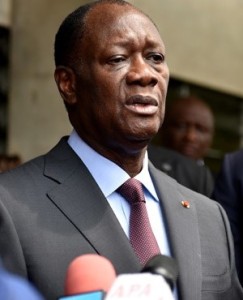 ) finally oust then President Laurent Gbagbo.
) finally oust then President Laurent Gbagbo.
Laurent Gbagbo refused to accept his defeat at the polls, sparking a civil conflict that ultimately claimed 3,000 lives before French military intervention led to his arrest and ongoing incarceration. The amendments to the Constitution seek to eliminate those ambiguities exploited by Gbagbo.
Ivory Coast was long the star economic performer in the region, until hitting several years of political and civil strife, but the country now appears to be back on track for accelerated growth, with the International Monetary Fund predicting the west African state could be the continent’s fastest-growing economy in 2017. Himself a former top official at the International Monetary Fund (IMF) and Central Bank of West African States (BCEAO), President Ouattara is credited with making good use of his international banking contacts to pump investment into the war-scarred economy since taking office.

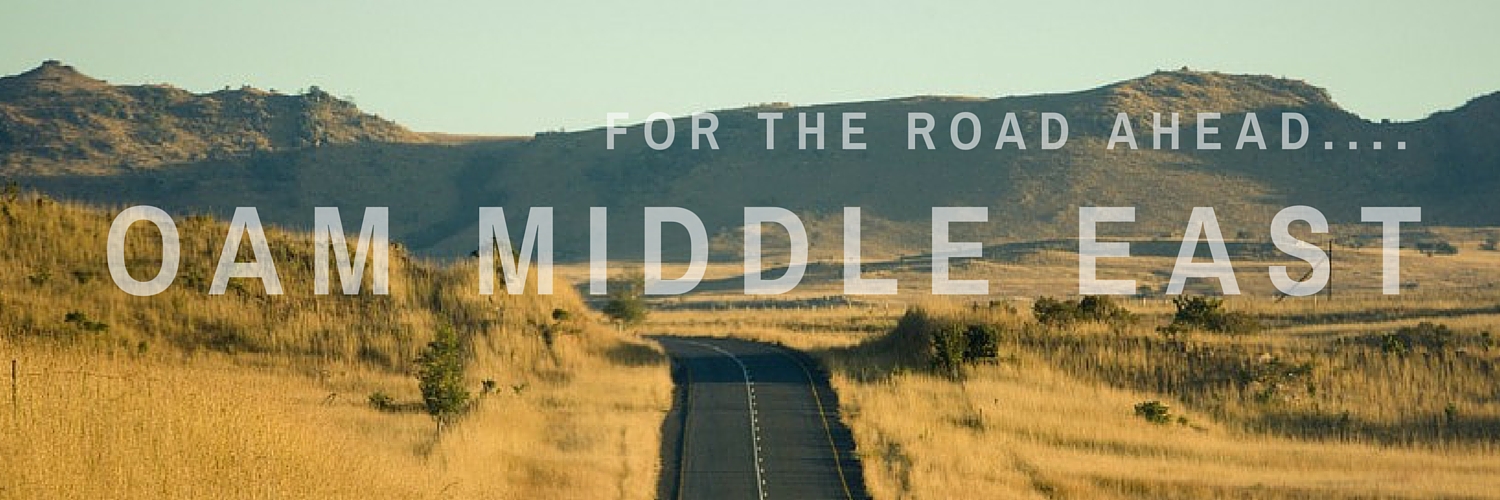
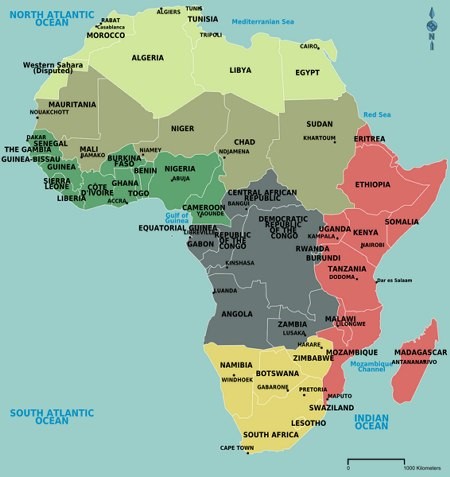
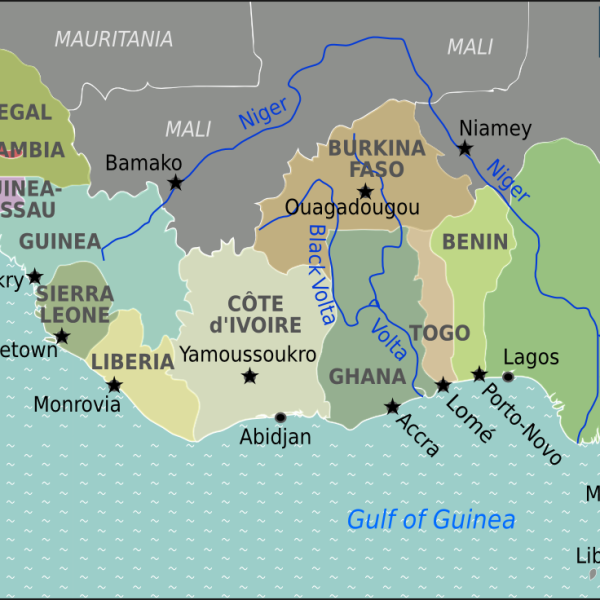
Leave a Reply